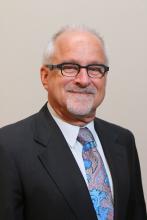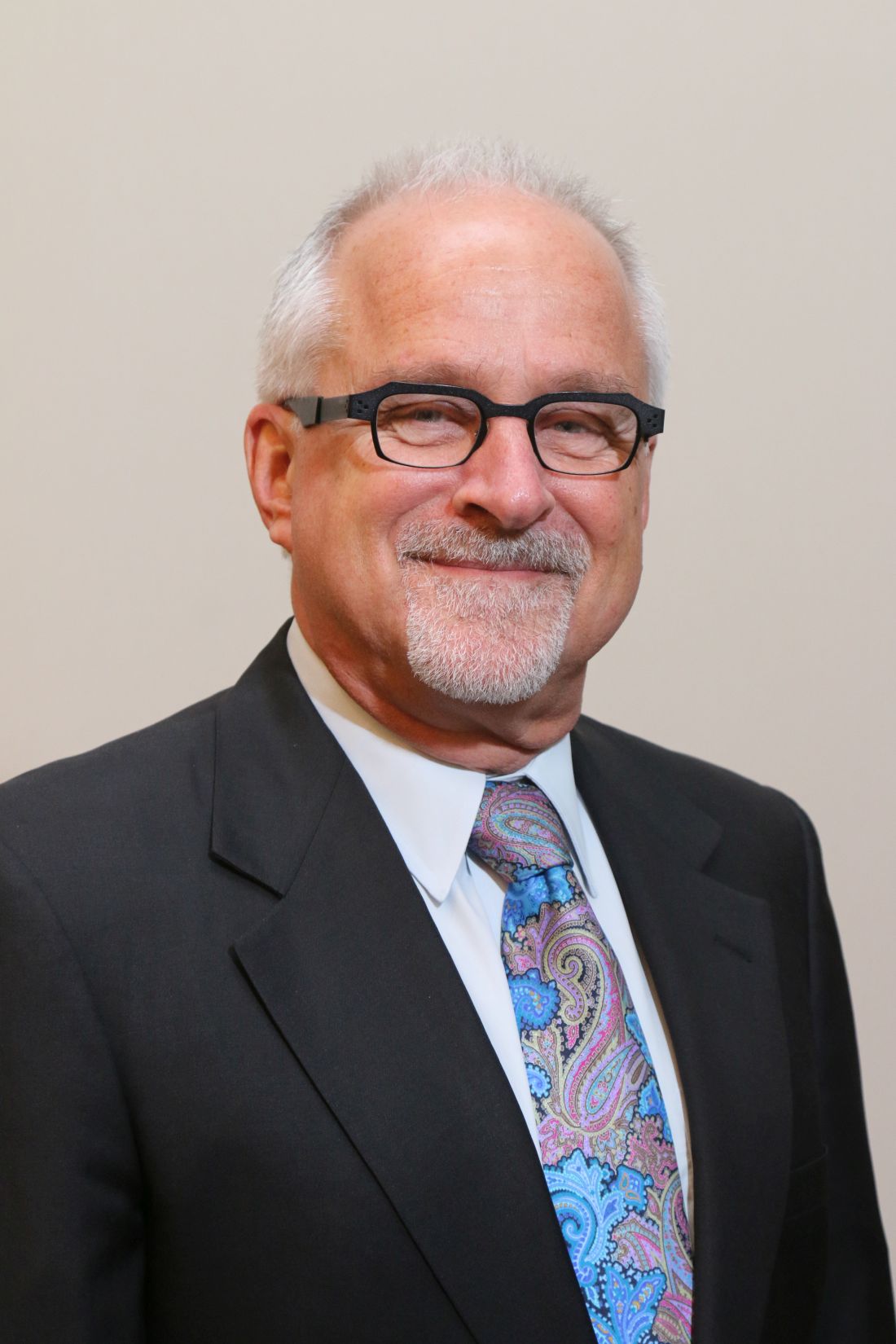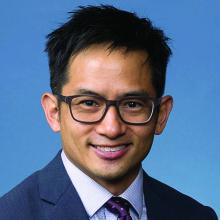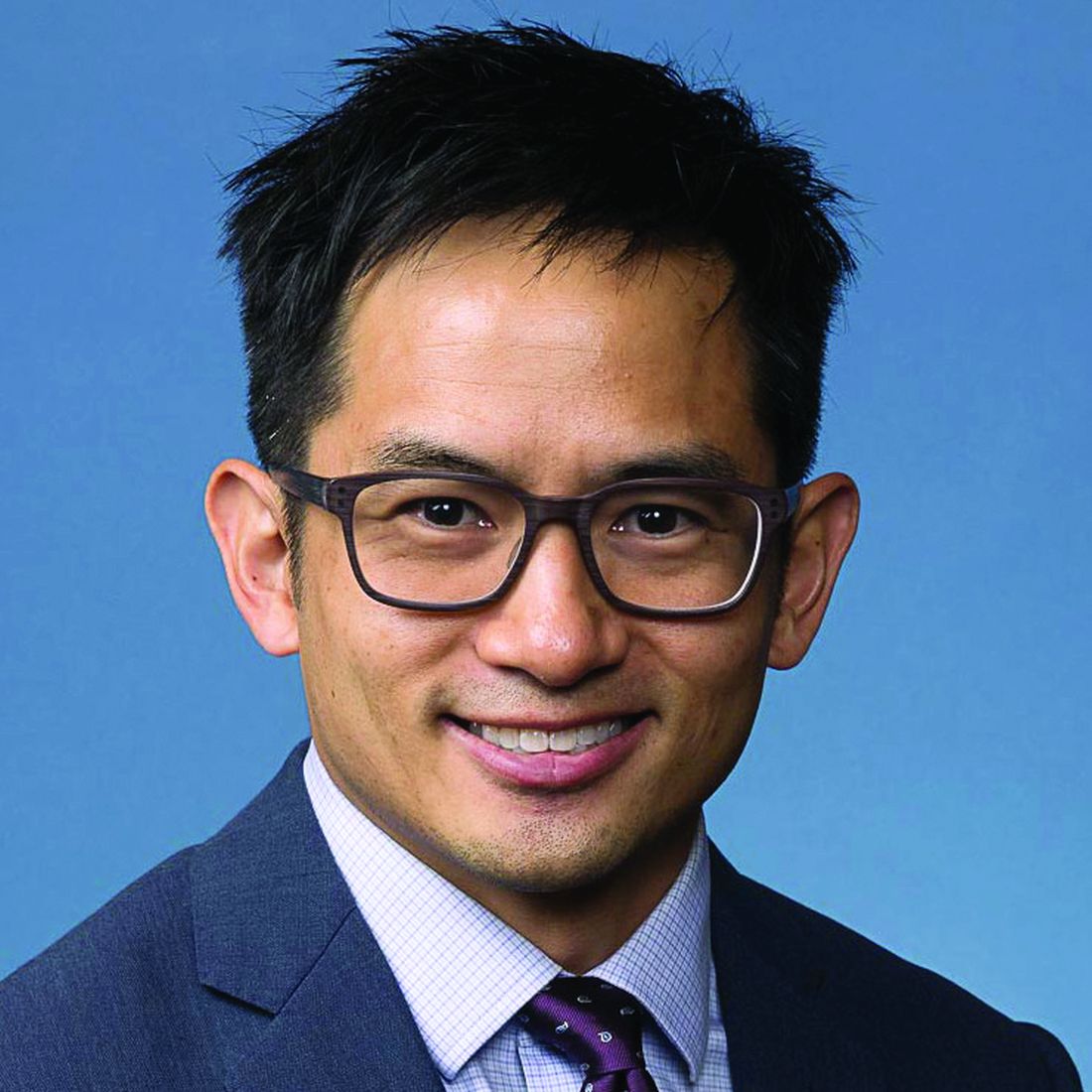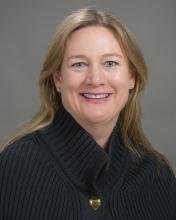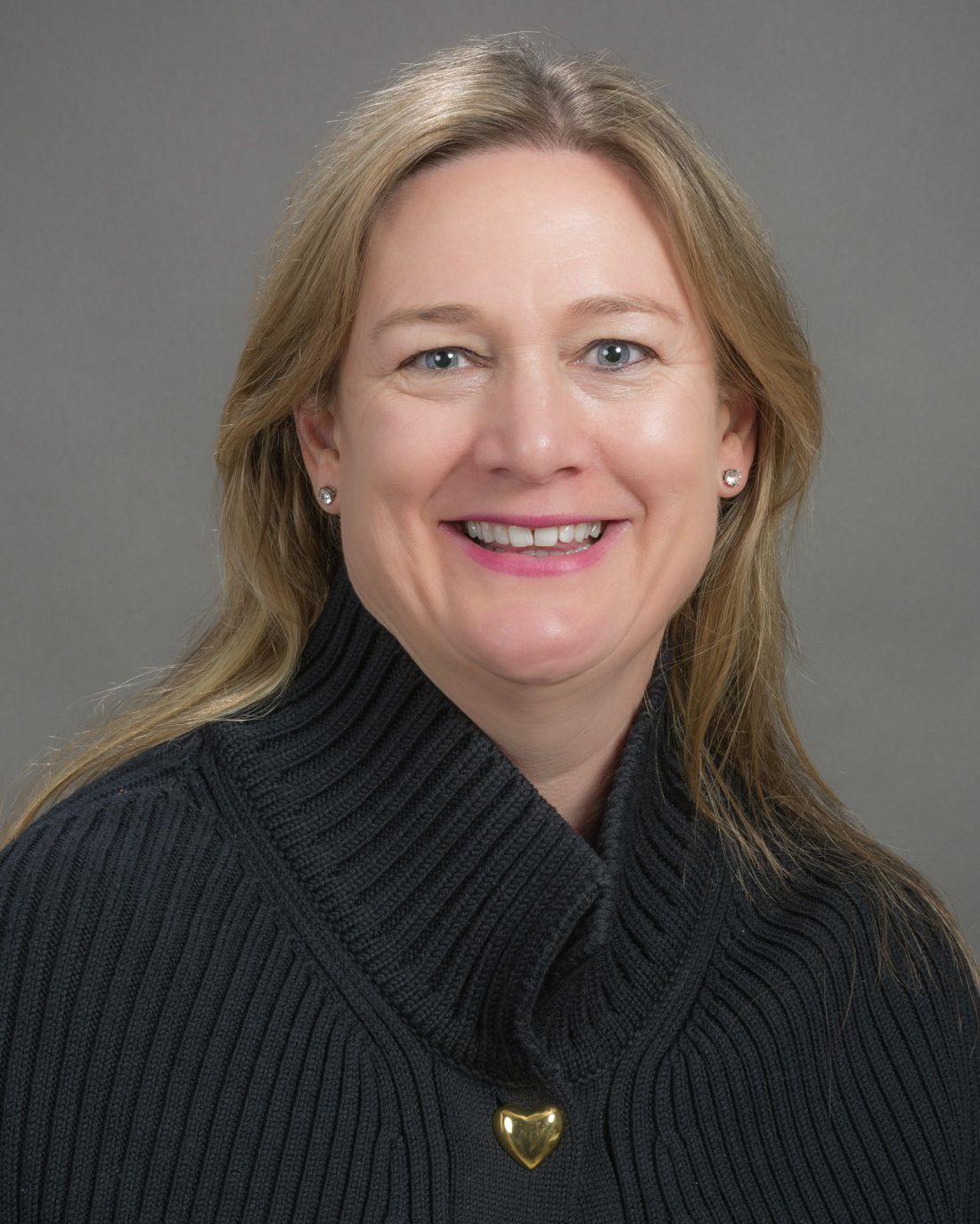User login
AGA Tech Summit Focuses on Accelerating Innovation
The AGA Tech Summit is building on the success of past summits and moving in a new direction. The reimagined summit will accelerate innovation by bringing together MedTech startups, innovators, investors and leaders in the field.
“It’s a new world out there. The Tech Summit now reflects the new direction AGA is taking in innovation,” said Lawrence R. Kosinski, MD, AGA at-large councilor for development and growth. “We want to help GI innovators successfully navigate the innovation lifecycle from start to finish and bring new technologies to market.”
The Tech Summit will take place April 11-12 in Chicago at MATTER, located at the Merchandise Mart. MATTER supports healthcare startups at all stages of growth and brings together industry executives, entrepreneurs, and investors to accelerate innovation, advance care and improve lives.
Highlights of the Tech Summit include:
- Keynote addresses from leaders in the field of GI innovation.
- Panel discussions with VC strategists.
- The Shark Tank Pitch Competition featuring emerging GI technologies.
- Multiple opportunities to network innovators, investors and leaders in the field.
- One-on-one consultations with VCs.
.
The AGA Tech Summit is building on the success of past summits and moving in a new direction. The reimagined summit will accelerate innovation by bringing together MedTech startups, innovators, investors and leaders in the field.
“It’s a new world out there. The Tech Summit now reflects the new direction AGA is taking in innovation,” said Lawrence R. Kosinski, MD, AGA at-large councilor for development and growth. “We want to help GI innovators successfully navigate the innovation lifecycle from start to finish and bring new technologies to market.”
The Tech Summit will take place April 11-12 in Chicago at MATTER, located at the Merchandise Mart. MATTER supports healthcare startups at all stages of growth and brings together industry executives, entrepreneurs, and investors to accelerate innovation, advance care and improve lives.
Highlights of the Tech Summit include:
- Keynote addresses from leaders in the field of GI innovation.
- Panel discussions with VC strategists.
- The Shark Tank Pitch Competition featuring emerging GI technologies.
- Multiple opportunities to network innovators, investors and leaders in the field.
- One-on-one consultations with VCs.
.
The AGA Tech Summit is building on the success of past summits and moving in a new direction. The reimagined summit will accelerate innovation by bringing together MedTech startups, innovators, investors and leaders in the field.
“It’s a new world out there. The Tech Summit now reflects the new direction AGA is taking in innovation,” said Lawrence R. Kosinski, MD, AGA at-large councilor for development and growth. “We want to help GI innovators successfully navigate the innovation lifecycle from start to finish and bring new technologies to market.”
The Tech Summit will take place April 11-12 in Chicago at MATTER, located at the Merchandise Mart. MATTER supports healthcare startups at all stages of growth and brings together industry executives, entrepreneurs, and investors to accelerate innovation, advance care and improve lives.
Highlights of the Tech Summit include:
- Keynote addresses from leaders in the field of GI innovation.
- Panel discussions with VC strategists.
- The Shark Tank Pitch Competition featuring emerging GI technologies.
- Multiple opportunities to network innovators, investors and leaders in the field.
- One-on-one consultations with VCs.
.
BCBSMA Rolls Back Restrictive Anesthesia Policy
In a significant victory for patients and healthcare providers, . The change is retroactive to Jan. 1, 2024, so no claims will be rejected for payment.
The decision follows intense advocacy efforts by a coalition that included AGA, the American Society of Anesthesiologists (ASA), and the American College of Surgeons (ACS), with the Massachusetts Gastroenterology Association demonstrating exceptional leadership and the Massachusetts Society of Anesthesiologists (MSA) persevering throughout the process. The BCBSMA heeded the coalition’s warnings about the potential impact on cancer screening access and patient choice in GI care.
Physician leaders representing the societies played a crucial role in meetings with BCBSMA, contributing to this positive outcome. Member engagement, including contacting legislators, media outreach, and participation in the #Noto154 campaign, had a substantial impact.
BCBSMA informed the societies that all claims will be paid; however, documentation will still be required for patients presenting with ASA 1 and ASA 2. Providers may download a list of commonly used diagnosis codes documented with the administration of propofol. The AGA encourages members to still be mindful that BCBSMA will be monitoring the use of these codes for propofol administration. Members can see BCBSMA policy 154 for the complete list of diagnosis codes that support use of MAC. The societies have requested that BCBSMA provide education to providers on this requirement.
The AGA intends to closely monitor developments to ensure similar policies are not introduced nationally.
In a significant victory for patients and healthcare providers, . The change is retroactive to Jan. 1, 2024, so no claims will be rejected for payment.
The decision follows intense advocacy efforts by a coalition that included AGA, the American Society of Anesthesiologists (ASA), and the American College of Surgeons (ACS), with the Massachusetts Gastroenterology Association demonstrating exceptional leadership and the Massachusetts Society of Anesthesiologists (MSA) persevering throughout the process. The BCBSMA heeded the coalition’s warnings about the potential impact on cancer screening access and patient choice in GI care.
Physician leaders representing the societies played a crucial role in meetings with BCBSMA, contributing to this positive outcome. Member engagement, including contacting legislators, media outreach, and participation in the #Noto154 campaign, had a substantial impact.
BCBSMA informed the societies that all claims will be paid; however, documentation will still be required for patients presenting with ASA 1 and ASA 2. Providers may download a list of commonly used diagnosis codes documented with the administration of propofol. The AGA encourages members to still be mindful that BCBSMA will be monitoring the use of these codes for propofol administration. Members can see BCBSMA policy 154 for the complete list of diagnosis codes that support use of MAC. The societies have requested that BCBSMA provide education to providers on this requirement.
The AGA intends to closely monitor developments to ensure similar policies are not introduced nationally.
In a significant victory for patients and healthcare providers, . The change is retroactive to Jan. 1, 2024, so no claims will be rejected for payment.
The decision follows intense advocacy efforts by a coalition that included AGA, the American Society of Anesthesiologists (ASA), and the American College of Surgeons (ACS), with the Massachusetts Gastroenterology Association demonstrating exceptional leadership and the Massachusetts Society of Anesthesiologists (MSA) persevering throughout the process. The BCBSMA heeded the coalition’s warnings about the potential impact on cancer screening access and patient choice in GI care.
Physician leaders representing the societies played a crucial role in meetings with BCBSMA, contributing to this positive outcome. Member engagement, including contacting legislators, media outreach, and participation in the #Noto154 campaign, had a substantial impact.
BCBSMA informed the societies that all claims will be paid; however, documentation will still be required for patients presenting with ASA 1 and ASA 2. Providers may download a list of commonly used diagnosis codes documented with the administration of propofol. The AGA encourages members to still be mindful that BCBSMA will be monitoring the use of these codes for propofol administration. Members can see BCBSMA policy 154 for the complete list of diagnosis codes that support use of MAC. The societies have requested that BCBSMA provide education to providers on this requirement.
The AGA intends to closely monitor developments to ensure similar policies are not introduced nationally.
AGA Research Scholar Awards Advance the GI Field
AGA’s flagship award is the Research Scholar Award, which provides career development support for young investigators in gastroenterology and hepatology research. In the last 10 years, the AGA Research Foundation has funded 63 young scientists through a Research Scholar Award grant.
“I want to express my sincere gratitude to the AGA Research Foundation and its benefactors. At this fragile and critical juncture, this AGA Research Scholar Award offers an unmatched opportunity to pursue the type of high-impact scientific work that allows a junior investigator such as myself to achieve the necessary momentum to create a nationally competitive research program,” states Alexander , MD, PhD, the Regent of the University of California, Los Angeles, 2023 AGA Research Scholar Award recipient.
Funded by the generosity of donors, the AGA Research Foundation’s research award program ensures that we are building a community of researchers whose work serves the greater community and benefits all our patients.
By joining others in supporting the AGA Research Foundation, you will ensure that young researchers have opportunities to continue their life-saving work. Your tax-deductible contribution supports the foundation’s research award program, including the Research Scholar Award, which ensures that studies are funded, discoveries are made, and patients are treated. Learn more or make a contribution at www.foundation.gastro.org.
AGA’s flagship award is the Research Scholar Award, which provides career development support for young investigators in gastroenterology and hepatology research. In the last 10 years, the AGA Research Foundation has funded 63 young scientists through a Research Scholar Award grant.
“I want to express my sincere gratitude to the AGA Research Foundation and its benefactors. At this fragile and critical juncture, this AGA Research Scholar Award offers an unmatched opportunity to pursue the type of high-impact scientific work that allows a junior investigator such as myself to achieve the necessary momentum to create a nationally competitive research program,” states Alexander , MD, PhD, the Regent of the University of California, Los Angeles, 2023 AGA Research Scholar Award recipient.
Funded by the generosity of donors, the AGA Research Foundation’s research award program ensures that we are building a community of researchers whose work serves the greater community and benefits all our patients.
By joining others in supporting the AGA Research Foundation, you will ensure that young researchers have opportunities to continue their life-saving work. Your tax-deductible contribution supports the foundation’s research award program, including the Research Scholar Award, which ensures that studies are funded, discoveries are made, and patients are treated. Learn more or make a contribution at www.foundation.gastro.org.
AGA’s flagship award is the Research Scholar Award, which provides career development support for young investigators in gastroenterology and hepatology research. In the last 10 years, the AGA Research Foundation has funded 63 young scientists through a Research Scholar Award grant.
“I want to express my sincere gratitude to the AGA Research Foundation and its benefactors. At this fragile and critical juncture, this AGA Research Scholar Award offers an unmatched opportunity to pursue the type of high-impact scientific work that allows a junior investigator such as myself to achieve the necessary momentum to create a nationally competitive research program,” states Alexander , MD, PhD, the Regent of the University of California, Los Angeles, 2023 AGA Research Scholar Award recipient.
Funded by the generosity of donors, the AGA Research Foundation’s research award program ensures that we are building a community of researchers whose work serves the greater community and benefits all our patients.
By joining others in supporting the AGA Research Foundation, you will ensure that young researchers have opportunities to continue their life-saving work. Your tax-deductible contribution supports the foundation’s research award program, including the Research Scholar Award, which ensures that studies are funded, discoveries are made, and patients are treated. Learn more or make a contribution at www.foundation.gastro.org.
Win! CMS reins in prior authorization
According to a rule issued by CMS, starting in 2026, health plans must decide on prior authorization requests within 72 hours for an expedited request or 7 days for non-urgent appeals.
The rule also requires plans to provide a detailed rationale for a denial and include metrics on denials and approvals.
AGA and our allies in the physician community have aggressively advocated that Congress and the Administration address prior auth, which slows patient access to care and contributes to physician burnout.
The rule applies to Medicare, Medicare Advantage (MA), Medicaid, Children’s Health Insurance Plans (CHIP), and qualified health plans on the exchange.
Thank you to our advocates who called on policymakers to take action to ensure patients receive care in a timely manner.
According to a rule issued by CMS, starting in 2026, health plans must decide on prior authorization requests within 72 hours for an expedited request or 7 days for non-urgent appeals.
The rule also requires plans to provide a detailed rationale for a denial and include metrics on denials and approvals.
AGA and our allies in the physician community have aggressively advocated that Congress and the Administration address prior auth, which slows patient access to care and contributes to physician burnout.
The rule applies to Medicare, Medicare Advantage (MA), Medicaid, Children’s Health Insurance Plans (CHIP), and qualified health plans on the exchange.
Thank you to our advocates who called on policymakers to take action to ensure patients receive care in a timely manner.
According to a rule issued by CMS, starting in 2026, health plans must decide on prior authorization requests within 72 hours for an expedited request or 7 days for non-urgent appeals.
The rule also requires plans to provide a detailed rationale for a denial and include metrics on denials and approvals.
AGA and our allies in the physician community have aggressively advocated that Congress and the Administration address prior auth, which slows patient access to care and contributes to physician burnout.
The rule applies to Medicare, Medicare Advantage (MA), Medicaid, Children’s Health Insurance Plans (CHIP), and qualified health plans on the exchange.
Thank you to our advocates who called on policymakers to take action to ensure patients receive care in a timely manner.
AGA sharpens focus on women
“Women continue to face unique barriers to leadership including gender bias, lack of role models, maternal discrimination, and lack of equal consideration for opportunities,” notes AGA President Barbara Jung, MD, AGAF. “AGA sits in a unique position where we can influence changes in academia and practice to improve the field for all women and particularly enhance women leaders.”
A tangible way AGA supports female leadership and career advancement is the Women in GI Regional Workshops. Throughout 2024, these workshops provide opportunities for networking, business and financial education training, burnout prevention strategies, and career advice.

Bigger picture, AGA’s Gender Equity Framework paints a compelling vision for the future in six domains:
- Bias & gender disparities: Academic institutions, healthcare systems, and practices establish regular systems of equity reviews and eradicate institutional gender disparities and bias.
- Leadership & career advancement: Equitable access to leadership in the field and professional GI societies for the benefit of medicine, research, and patient care.
- Wellness & balance: Women in GI experience balanced integration of family, work, community, health, and professional growth.
- Retention & recruitment: GI is the leading specialty for women in medicine and a sustainable career where women grow and thrive.
- Mentorship & sponsorship: The benefits of mentorship and sponsorship are universally recognized and incentivized in GI institutions and practices.
- Recognition: Equitable recognition of the achievements and contributions of women in GI.
In the coming years, AGA committees will collaborate with the AGA Women’s Committee to achieve the vision laid out in the AGA Gender Equity Framework. Thank you to the AGA Women’s Committee, which created the framework, under the leadership of chair Aimee Lucas, MD, MS, AGAF, and within the auspices of the AGA Equity Project (gastro.org/equity).
“Women continue to face unique barriers to leadership including gender bias, lack of role models, maternal discrimination, and lack of equal consideration for opportunities,” notes AGA President Barbara Jung, MD, AGAF. “AGA sits in a unique position where we can influence changes in academia and practice to improve the field for all women and particularly enhance women leaders.”
A tangible way AGA supports female leadership and career advancement is the Women in GI Regional Workshops. Throughout 2024, these workshops provide opportunities for networking, business and financial education training, burnout prevention strategies, and career advice.

Bigger picture, AGA’s Gender Equity Framework paints a compelling vision for the future in six domains:
- Bias & gender disparities: Academic institutions, healthcare systems, and practices establish regular systems of equity reviews and eradicate institutional gender disparities and bias.
- Leadership & career advancement: Equitable access to leadership in the field and professional GI societies for the benefit of medicine, research, and patient care.
- Wellness & balance: Women in GI experience balanced integration of family, work, community, health, and professional growth.
- Retention & recruitment: GI is the leading specialty for women in medicine and a sustainable career where women grow and thrive.
- Mentorship & sponsorship: The benefits of mentorship and sponsorship are universally recognized and incentivized in GI institutions and practices.
- Recognition: Equitable recognition of the achievements and contributions of women in GI.
In the coming years, AGA committees will collaborate with the AGA Women’s Committee to achieve the vision laid out in the AGA Gender Equity Framework. Thank you to the AGA Women’s Committee, which created the framework, under the leadership of chair Aimee Lucas, MD, MS, AGAF, and within the auspices of the AGA Equity Project (gastro.org/equity).
“Women continue to face unique barriers to leadership including gender bias, lack of role models, maternal discrimination, and lack of equal consideration for opportunities,” notes AGA President Barbara Jung, MD, AGAF. “AGA sits in a unique position where we can influence changes in academia and practice to improve the field for all women and particularly enhance women leaders.”
A tangible way AGA supports female leadership and career advancement is the Women in GI Regional Workshops. Throughout 2024, these workshops provide opportunities for networking, business and financial education training, burnout prevention strategies, and career advice.

Bigger picture, AGA’s Gender Equity Framework paints a compelling vision for the future in six domains:
- Bias & gender disparities: Academic institutions, healthcare systems, and practices establish regular systems of equity reviews and eradicate institutional gender disparities and bias.
- Leadership & career advancement: Equitable access to leadership in the field and professional GI societies for the benefit of medicine, research, and patient care.
- Wellness & balance: Women in GI experience balanced integration of family, work, community, health, and professional growth.
- Retention & recruitment: GI is the leading specialty for women in medicine and a sustainable career where women grow and thrive.
- Mentorship & sponsorship: The benefits of mentorship and sponsorship are universally recognized and incentivized in GI institutions and practices.
- Recognition: Equitable recognition of the achievements and contributions of women in GI.
In the coming years, AGA committees will collaborate with the AGA Women’s Committee to achieve the vision laid out in the AGA Gender Equity Framework. Thank you to the AGA Women’s Committee, which created the framework, under the leadership of chair Aimee Lucas, MD, MS, AGAF, and within the auspices of the AGA Equity Project (gastro.org/equity).
AGA members save on registration for DDW® 2024
, the world’s largest and most comprehensive gathering of gastroenterology clinicians, researchers and industry. Registration and housing are now open, and AGA members can save up to $380 on registration fees. Discounted registration rates are also available through the March 13 early bird deadline. AGA member trainees, students, residents and postdoctoral fellows can register for free through this date. Visit ddw.org/register to join us.
This year, DDW takes place May 18-21, in Washington, D.C., and online. Whether you work in patient care, research, training or academia, you’ll find content tailored to your essential role at every step.
Add on to your DDW experience with AGA’s one-day Postgraduate Course. Join us on May 18, from D.C. or online, to explore challenging patient cases, high-impact papers, and important practice updates that you can use immediately upon your return to the clinic. Learn more at pgcourse.gastro.org.
, the world’s largest and most comprehensive gathering of gastroenterology clinicians, researchers and industry. Registration and housing are now open, and AGA members can save up to $380 on registration fees. Discounted registration rates are also available through the March 13 early bird deadline. AGA member trainees, students, residents and postdoctoral fellows can register for free through this date. Visit ddw.org/register to join us.
This year, DDW takes place May 18-21, in Washington, D.C., and online. Whether you work in patient care, research, training or academia, you’ll find content tailored to your essential role at every step.
Add on to your DDW experience with AGA’s one-day Postgraduate Course. Join us on May 18, from D.C. or online, to explore challenging patient cases, high-impact papers, and important practice updates that you can use immediately upon your return to the clinic. Learn more at pgcourse.gastro.org.
, the world’s largest and most comprehensive gathering of gastroenterology clinicians, researchers and industry. Registration and housing are now open, and AGA members can save up to $380 on registration fees. Discounted registration rates are also available through the March 13 early bird deadline. AGA member trainees, students, residents and postdoctoral fellows can register for free through this date. Visit ddw.org/register to join us.
This year, DDW takes place May 18-21, in Washington, D.C., and online. Whether you work in patient care, research, training or academia, you’ll find content tailored to your essential role at every step.
Add on to your DDW experience with AGA’s one-day Postgraduate Course. Join us on May 18, from D.C. or online, to explore challenging patient cases, high-impact papers, and important practice updates that you can use immediately upon your return to the clinic. Learn more at pgcourse.gastro.org.
Elevate Your Career: AGA Women in GI Regional Workshops Await
As a woman in a dynamic and ever-changing profession, balancing life as a powerhouse physician or scientist is no easy feat.
Expanded to six workshops in 2024, AGA is pleased to offer regionally curated workshops with distinguished speakers at all experience levels to fuel your professional and personal growth. Participate in candid discussions regarding the distinct challenges you face as a woman navigating the 21st century healthcare environment. Derive inspiration from your community and cultivate meaningful connections that will carry you beyond the workshop.
Join us in-person or virtually, whatever fits into your busy schedule. We are also pleased to offer travel grants of up to $300 (per workshop) to help offset the costs of attending this program for one selected individual per region. The travel grant is to support travel and registration fees for early-career women. Additional details for the Maria Leo-Lieber Travel Award may be found in your confirmation email.
Ready to thrive? Register today to attend one of our first workshops or stay tuned for an additional workshop coming near you.
This program is supported by Janssen.
Midwest Regional Workshop
Saturday, Feb. 24, 2024
8 a.m.-3 p.m. CT
University of Chicago, Gleacher Center, Chicago, IL
Deadline to apply for a travel grant: Feb. 9, 2024 Deadline to register: Feb. 16, 2024
Click here to register.
Western Regional Workshop
Saturday, April 27, 2024
8 a.m.-3 p.m. PT
UCLA Luskin Conference Center, Los Angeles, CA
Meet fellow attendees at our pre-workshop networking event on Friday, Apr. 26 from 8 p.m. to 10:30 p.m.
Deadline to apply for a travel grant: April 12, 2024 Deadline to register: April 19, 2024
Click here to register.
As a woman in a dynamic and ever-changing profession, balancing life as a powerhouse physician or scientist is no easy feat.
Expanded to six workshops in 2024, AGA is pleased to offer regionally curated workshops with distinguished speakers at all experience levels to fuel your professional and personal growth. Participate in candid discussions regarding the distinct challenges you face as a woman navigating the 21st century healthcare environment. Derive inspiration from your community and cultivate meaningful connections that will carry you beyond the workshop.
Join us in-person or virtually, whatever fits into your busy schedule. We are also pleased to offer travel grants of up to $300 (per workshop) to help offset the costs of attending this program for one selected individual per region. The travel grant is to support travel and registration fees for early-career women. Additional details for the Maria Leo-Lieber Travel Award may be found in your confirmation email.
Ready to thrive? Register today to attend one of our first workshops or stay tuned for an additional workshop coming near you.
This program is supported by Janssen.
Midwest Regional Workshop
Saturday, Feb. 24, 2024
8 a.m.-3 p.m. CT
University of Chicago, Gleacher Center, Chicago, IL
Deadline to apply for a travel grant: Feb. 9, 2024 Deadline to register: Feb. 16, 2024
Click here to register.
Western Regional Workshop
Saturday, April 27, 2024
8 a.m.-3 p.m. PT
UCLA Luskin Conference Center, Los Angeles, CA
Meet fellow attendees at our pre-workshop networking event on Friday, Apr. 26 from 8 p.m. to 10:30 p.m.
Deadline to apply for a travel grant: April 12, 2024 Deadline to register: April 19, 2024
Click here to register.
As a woman in a dynamic and ever-changing profession, balancing life as a powerhouse physician or scientist is no easy feat.
Expanded to six workshops in 2024, AGA is pleased to offer regionally curated workshops with distinguished speakers at all experience levels to fuel your professional and personal growth. Participate in candid discussions regarding the distinct challenges you face as a woman navigating the 21st century healthcare environment. Derive inspiration from your community and cultivate meaningful connections that will carry you beyond the workshop.
Join us in-person or virtually, whatever fits into your busy schedule. We are also pleased to offer travel grants of up to $300 (per workshop) to help offset the costs of attending this program for one selected individual per region. The travel grant is to support travel and registration fees for early-career women. Additional details for the Maria Leo-Lieber Travel Award may be found in your confirmation email.
Ready to thrive? Register today to attend one of our first workshops or stay tuned for an additional workshop coming near you.
This program is supported by Janssen.
Midwest Regional Workshop
Saturday, Feb. 24, 2024
8 a.m.-3 p.m. CT
University of Chicago, Gleacher Center, Chicago, IL
Deadline to apply for a travel grant: Feb. 9, 2024 Deadline to register: Feb. 16, 2024
Click here to register.
Western Regional Workshop
Saturday, April 27, 2024
8 a.m.-3 p.m. PT
UCLA Luskin Conference Center, Los Angeles, CA
Meet fellow attendees at our pre-workshop networking event on Friday, Apr. 26 from 8 p.m. to 10:30 p.m.
Deadline to apply for a travel grant: April 12, 2024 Deadline to register: April 19, 2024
Click here to register.
AGA Legacy Society Members Sustain GI Research
Research creates successful practices. Patients benefit from GI research daily in practices. Scientists are working hard to develop new treatments, therapies and discover cures to advance the field and better patient care. But they can’t do this without research funding.
They recognize the value that research has had in their profession, both in academic medicine and in private practice, and are showing their appreciation by giving back.
“I give back because I have a firsthand knowledge of what it will mean to a young investigator’s career,” said Shrikant Anant, PhD, AGAF, University of Kansas, AGA Legacy Society member. “I was propelled in my career when I received the 2002 AGA Research Scholar Award from the AGA Research Foundation. The funds helped me develop my independent research that led to many NIH grants and, associated with it, career advancement. I still vividly remember the day I received the notice of award and how my whole life changed. Today, I am proud to be a donor myself because I know it is making a difference on yet another young investigator.”
The AGA Legacy Society boasts 161 members. AGA Legacy Society members see the promise the future holds and are committed to furthering research in gastroenterology and hepatology through their generous donations.
AGA members who make gifts at the AGA Legacy Society level anytime before Digestive Disease Week® (DDW) 2024 will receive an invitation to the AGA Research Foundation Benefactor’s Event in Washington, D.C. Individuals interested in learning more about the AGA Legacy Society membership may contact foundation@gastro.org or visit https://foundation.gastro.org/our-donors/aga-legacy-society/ for more information about the AGA Legacy Society.
Research creates successful practices. Patients benefit from GI research daily in practices. Scientists are working hard to develop new treatments, therapies and discover cures to advance the field and better patient care. But they can’t do this without research funding.
They recognize the value that research has had in their profession, both in academic medicine and in private practice, and are showing their appreciation by giving back.
“I give back because I have a firsthand knowledge of what it will mean to a young investigator’s career,” said Shrikant Anant, PhD, AGAF, University of Kansas, AGA Legacy Society member. “I was propelled in my career when I received the 2002 AGA Research Scholar Award from the AGA Research Foundation. The funds helped me develop my independent research that led to many NIH grants and, associated with it, career advancement. I still vividly remember the day I received the notice of award and how my whole life changed. Today, I am proud to be a donor myself because I know it is making a difference on yet another young investigator.”
The AGA Legacy Society boasts 161 members. AGA Legacy Society members see the promise the future holds and are committed to furthering research in gastroenterology and hepatology through their generous donations.
AGA members who make gifts at the AGA Legacy Society level anytime before Digestive Disease Week® (DDW) 2024 will receive an invitation to the AGA Research Foundation Benefactor’s Event in Washington, D.C. Individuals interested in learning more about the AGA Legacy Society membership may contact foundation@gastro.org or visit https://foundation.gastro.org/our-donors/aga-legacy-society/ for more information about the AGA Legacy Society.
Research creates successful practices. Patients benefit from GI research daily in practices. Scientists are working hard to develop new treatments, therapies and discover cures to advance the field and better patient care. But they can’t do this without research funding.
They recognize the value that research has had in their profession, both in academic medicine and in private practice, and are showing their appreciation by giving back.
“I give back because I have a firsthand knowledge of what it will mean to a young investigator’s career,” said Shrikant Anant, PhD, AGAF, University of Kansas, AGA Legacy Society member. “I was propelled in my career when I received the 2002 AGA Research Scholar Award from the AGA Research Foundation. The funds helped me develop my independent research that led to many NIH grants and, associated with it, career advancement. I still vividly remember the day I received the notice of award and how my whole life changed. Today, I am proud to be a donor myself because I know it is making a difference on yet another young investigator.”
The AGA Legacy Society boasts 161 members. AGA Legacy Society members see the promise the future holds and are committed to furthering research in gastroenterology and hepatology through their generous donations.
AGA members who make gifts at the AGA Legacy Society level anytime before Digestive Disease Week® (DDW) 2024 will receive an invitation to the AGA Research Foundation Benefactor’s Event in Washington, D.C. Individuals interested in learning more about the AGA Legacy Society membership may contact foundation@gastro.org or visit https://foundation.gastro.org/our-donors/aga-legacy-society/ for more information about the AGA Legacy Society.
2024 Gut Microbiota for Health World Summit Explores the Clinical Impacts of the Microbiome
Join global experts in-person or online as they gather for the 2024 Gut Microbiota for Health World Summit (GMFH) on March 23-24, 2024, in Washington, DC.
This meeting brings together an international and multidisciplinary community of GI clinicians, dietitians, and researchers to discuss personalized approaches to modifying the gut microbiome to improve health and treat disease.
This year’s program will explore:
- Better health through the gut microbiome.
- Big data and the gut microbiome.
- Human-derived to synthetic communities.
- Bringing new microbiome-based products to market.
Early-career faculty and trainees are encouraged to submit abstracts for presentation during the reception. Five $1,000 abstract prizes are available for top-scoring submissions.
Register here.
Join global experts in-person or online as they gather for the 2024 Gut Microbiota for Health World Summit (GMFH) on March 23-24, 2024, in Washington, DC.
This meeting brings together an international and multidisciplinary community of GI clinicians, dietitians, and researchers to discuss personalized approaches to modifying the gut microbiome to improve health and treat disease.
This year’s program will explore:
- Better health through the gut microbiome.
- Big data and the gut microbiome.
- Human-derived to synthetic communities.
- Bringing new microbiome-based products to market.
Early-career faculty and trainees are encouraged to submit abstracts for presentation during the reception. Five $1,000 abstract prizes are available for top-scoring submissions.
Register here.
Join global experts in-person or online as they gather for the 2024 Gut Microbiota for Health World Summit (GMFH) on March 23-24, 2024, in Washington, DC.
This meeting brings together an international and multidisciplinary community of GI clinicians, dietitians, and researchers to discuss personalized approaches to modifying the gut microbiome to improve health and treat disease.
This year’s program will explore:
- Better health through the gut microbiome.
- Big data and the gut microbiome.
- Human-derived to synthetic communities.
- Bringing new microbiome-based products to market.
Early-career faculty and trainees are encouraged to submit abstracts for presentation during the reception. Five $1,000 abstract prizes are available for top-scoring submissions.
Register here.
Announcing AGA Journal Social Media Editors
AGA journals have welcomed new social media editors for Clinical Gastroenterology and Hepatology (CGH), Cellular and Molecular Gastroenterology and Hepatology (CMGH), Techniques and Innovations in Gastrointestinal Endoscopy (TIGE) and Gastro Hep Advances (GHA).
Clinical Gastroenterology and Hepatology (CGH)
Joseph Sleiman, MD
University of Pittsburgh Medical Center
Dr. Sleiman’s research interests include inflammatory bowel disease (IBD), immunotherapy-induced colitis, Lynch Syndrome surveillance strategies and machine learning for GI research purposes.
Follow Dr. Sleiman
Cellular and Molecular Gastroenterology and Hepatology (CMGH)
Lindsey Kennedy, PhD
Indiana University School of Medicine
Dr. Kennedy’s research interests include the cellular crosstalk and pathological mechanisms regulating biliary and liver damage in cholestatic disorders, such as primary sclerosing cholangitis (PSC) and primary biliary cholangitis (PBC).
Follow Dr. Kennedy
Techniques and Innovations in Gastrointestinal Endoscopy (TIGE)
Judy Trieu, MD, MPH
Washington University Physicians
Dr. Trieu specializes in interventional endoscopy and general gastroenterology.
Follow Dr. Trieu
Gastro Hep Advances (GHA)
Shida Haghighat, MD, MPH
University of Miami
Dr. Haghighat’s research interests center around the prevention and screening of gastrointestinal cancers.
Follow Dr. Haghihat
AGA journals have welcomed new social media editors for Clinical Gastroenterology and Hepatology (CGH), Cellular and Molecular Gastroenterology and Hepatology (CMGH), Techniques and Innovations in Gastrointestinal Endoscopy (TIGE) and Gastro Hep Advances (GHA).
Clinical Gastroenterology and Hepatology (CGH)
Joseph Sleiman, MD
University of Pittsburgh Medical Center
Dr. Sleiman’s research interests include inflammatory bowel disease (IBD), immunotherapy-induced colitis, Lynch Syndrome surveillance strategies and machine learning for GI research purposes.
Follow Dr. Sleiman
Cellular and Molecular Gastroenterology and Hepatology (CMGH)
Lindsey Kennedy, PhD
Indiana University School of Medicine
Dr. Kennedy’s research interests include the cellular crosstalk and pathological mechanisms regulating biliary and liver damage in cholestatic disorders, such as primary sclerosing cholangitis (PSC) and primary biliary cholangitis (PBC).
Follow Dr. Kennedy
Techniques and Innovations in Gastrointestinal Endoscopy (TIGE)
Judy Trieu, MD, MPH
Washington University Physicians
Dr. Trieu specializes in interventional endoscopy and general gastroenterology.
Follow Dr. Trieu
Gastro Hep Advances (GHA)
Shida Haghighat, MD, MPH
University of Miami
Dr. Haghighat’s research interests center around the prevention and screening of gastrointestinal cancers.
Follow Dr. Haghihat
AGA journals have welcomed new social media editors for Clinical Gastroenterology and Hepatology (CGH), Cellular and Molecular Gastroenterology and Hepatology (CMGH), Techniques and Innovations in Gastrointestinal Endoscopy (TIGE) and Gastro Hep Advances (GHA).
Clinical Gastroenterology and Hepatology (CGH)
Joseph Sleiman, MD
University of Pittsburgh Medical Center
Dr. Sleiman’s research interests include inflammatory bowel disease (IBD), immunotherapy-induced colitis, Lynch Syndrome surveillance strategies and machine learning for GI research purposes.
Follow Dr. Sleiman
Cellular and Molecular Gastroenterology and Hepatology (CMGH)
Lindsey Kennedy, PhD
Indiana University School of Medicine
Dr. Kennedy’s research interests include the cellular crosstalk and pathological mechanisms regulating biliary and liver damage in cholestatic disorders, such as primary sclerosing cholangitis (PSC) and primary biliary cholangitis (PBC).
Follow Dr. Kennedy
Techniques and Innovations in Gastrointestinal Endoscopy (TIGE)
Judy Trieu, MD, MPH
Washington University Physicians
Dr. Trieu specializes in interventional endoscopy and general gastroenterology.
Follow Dr. Trieu
Gastro Hep Advances (GHA)
Shida Haghighat, MD, MPH
University of Miami
Dr. Haghighat’s research interests center around the prevention and screening of gastrointestinal cancers.
Follow Dr. Haghihat
